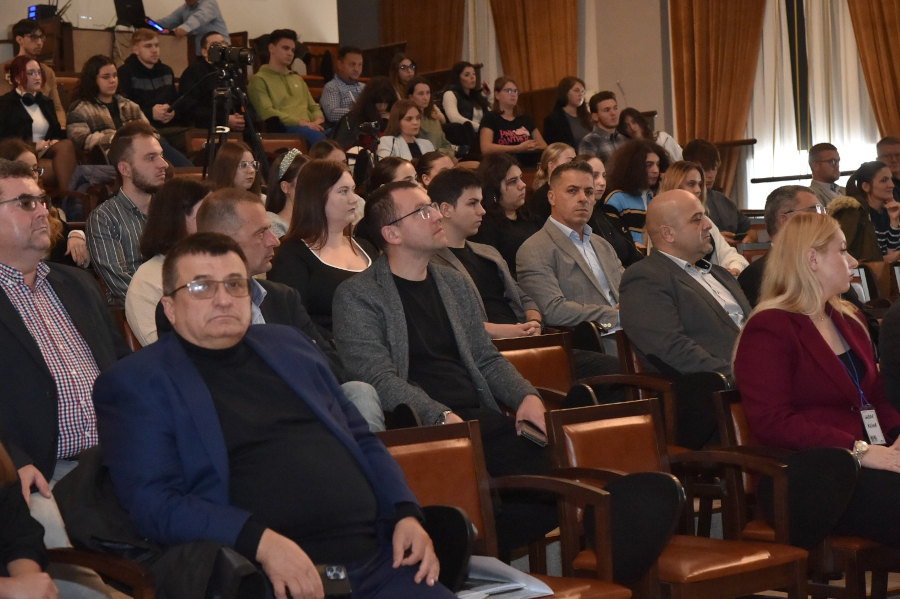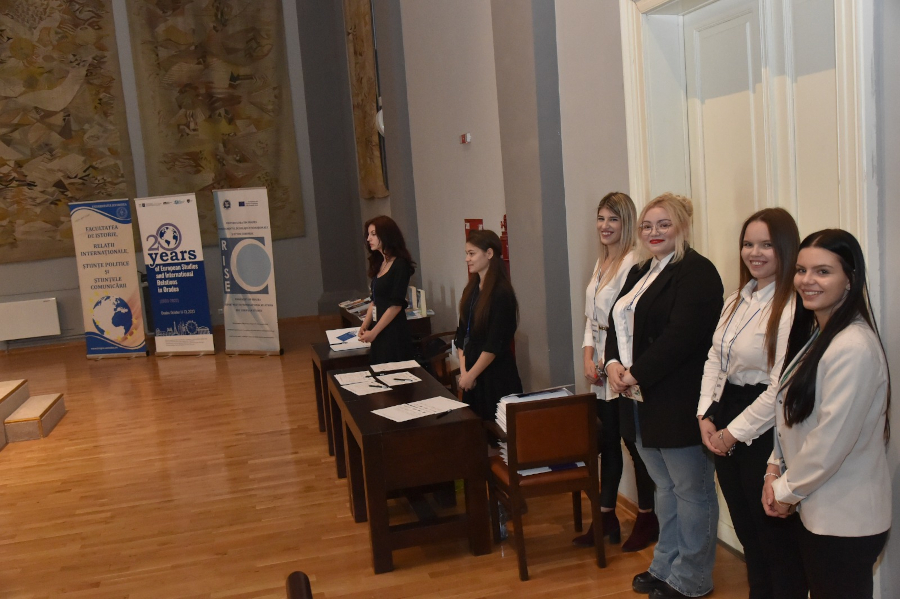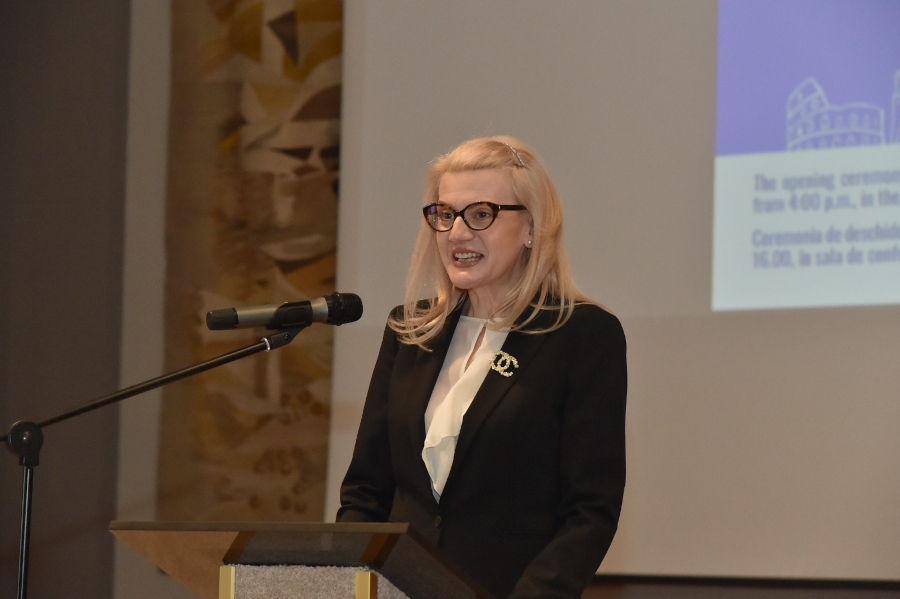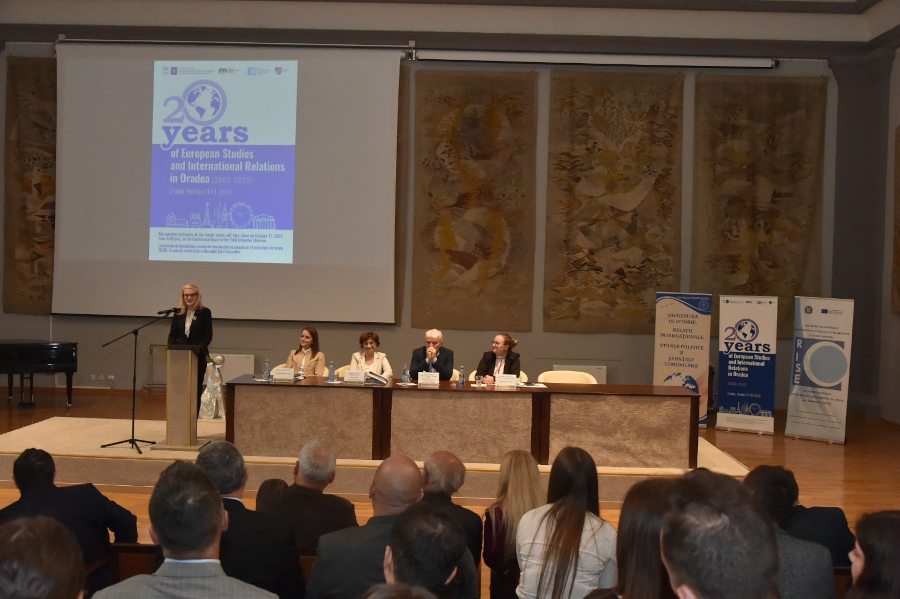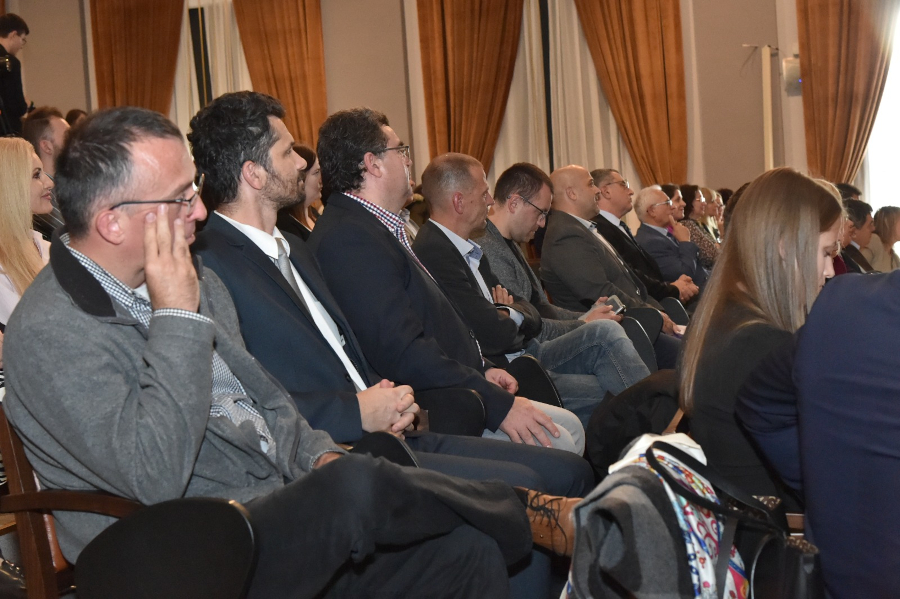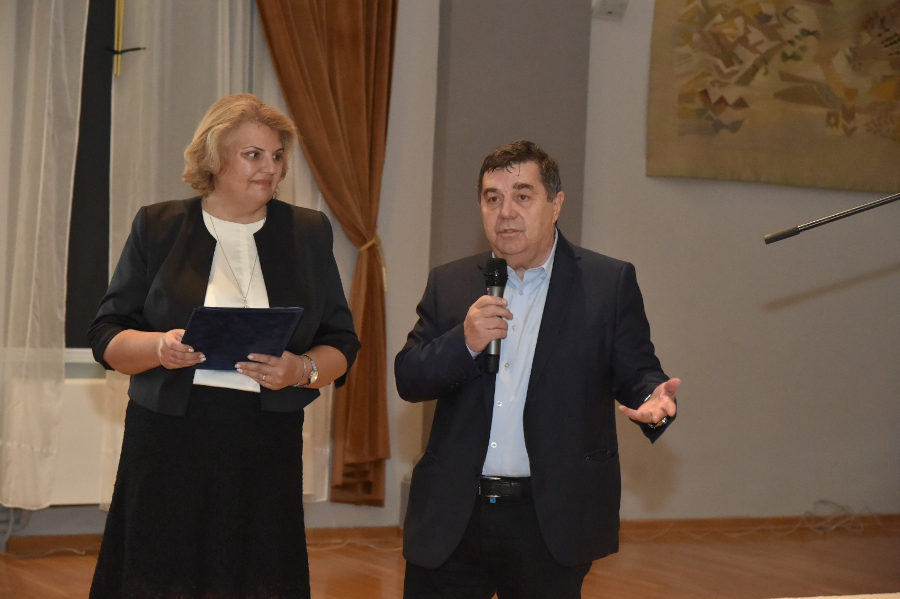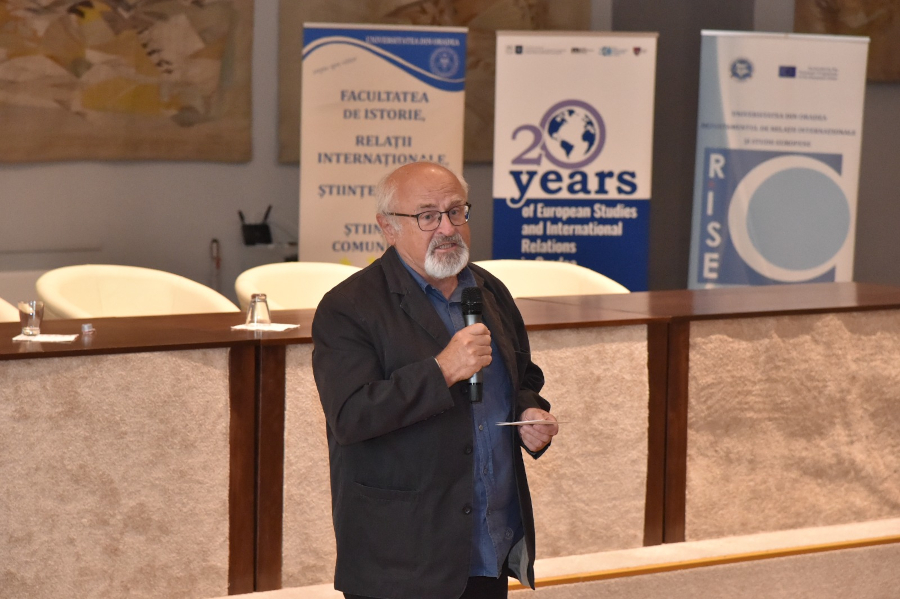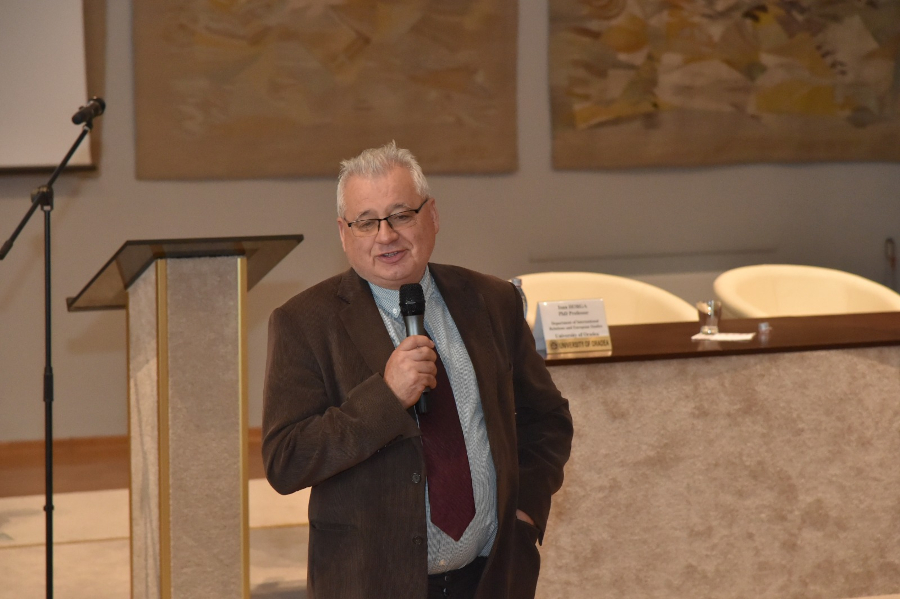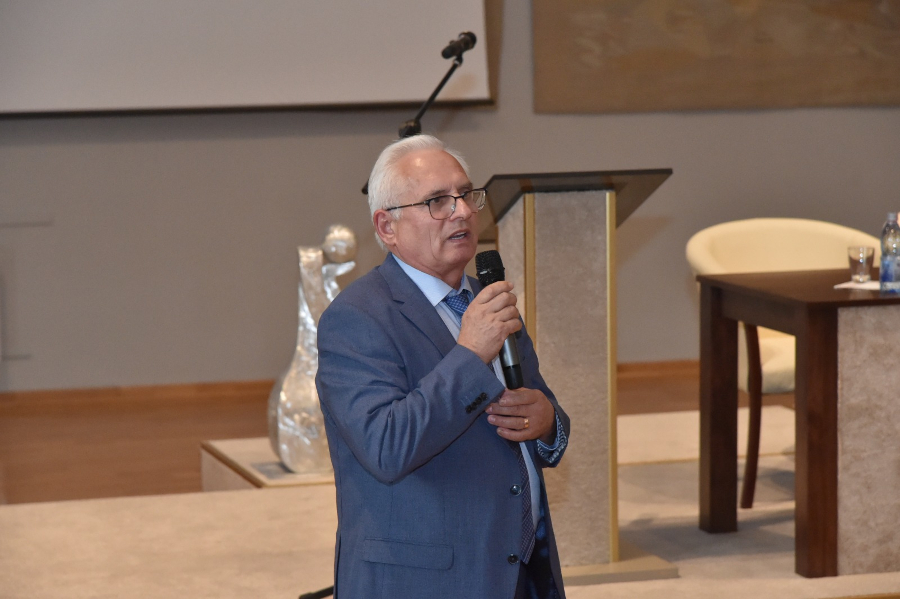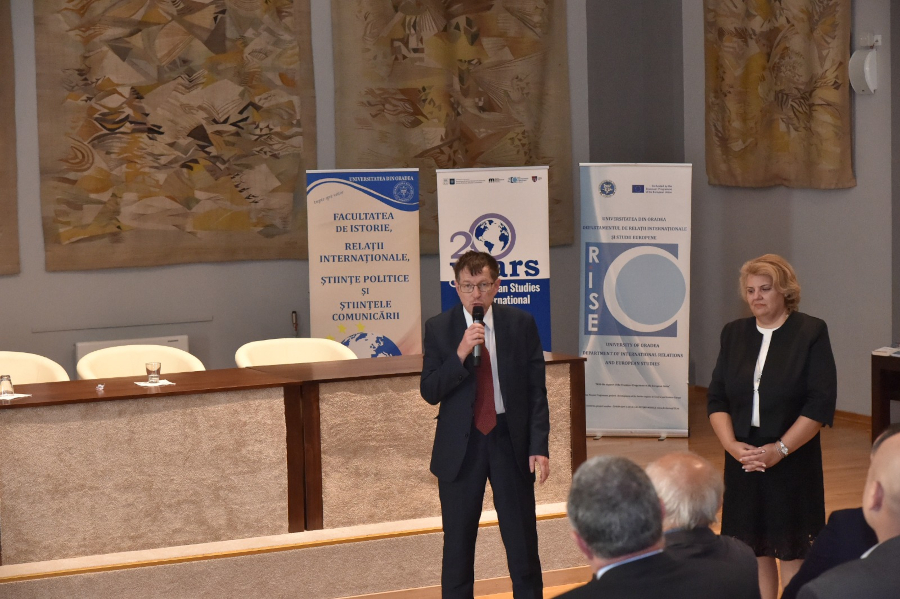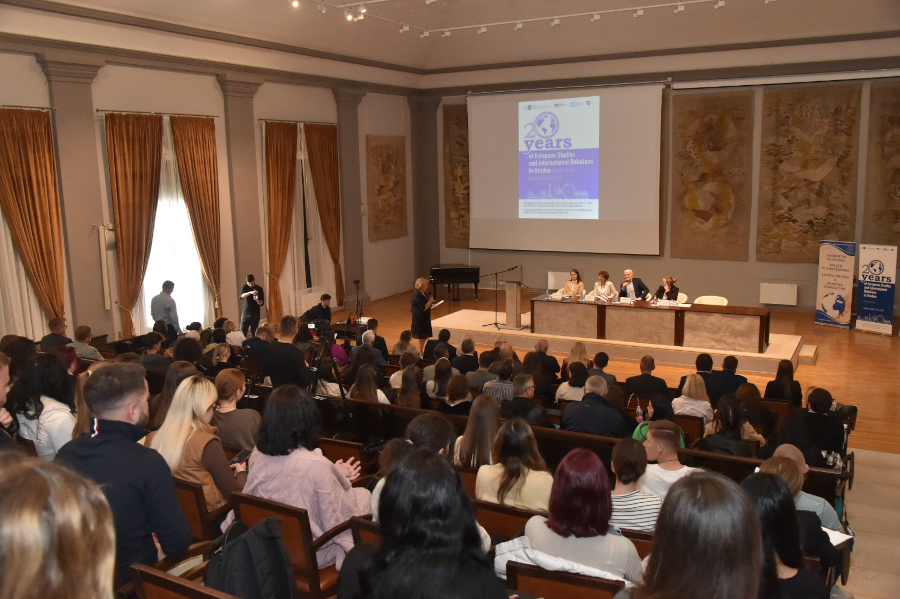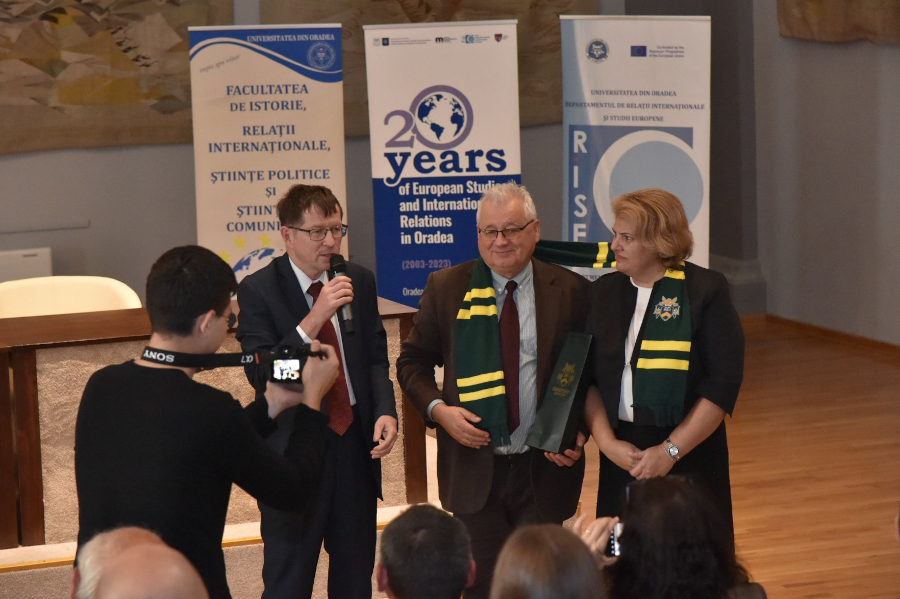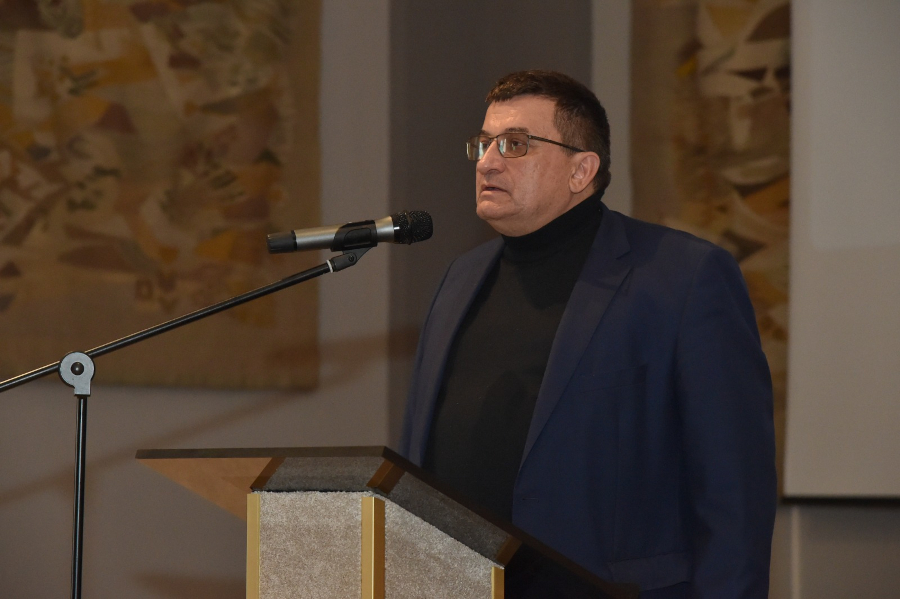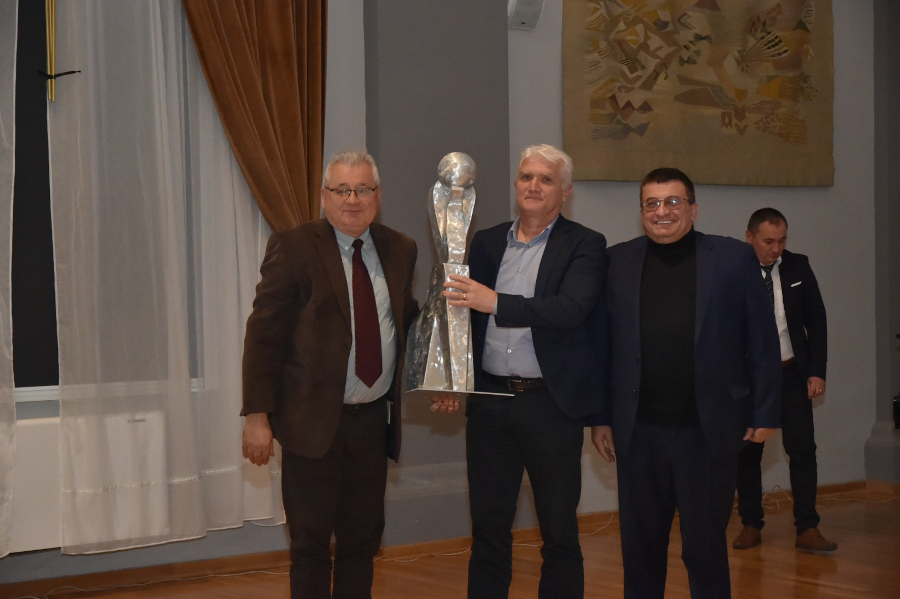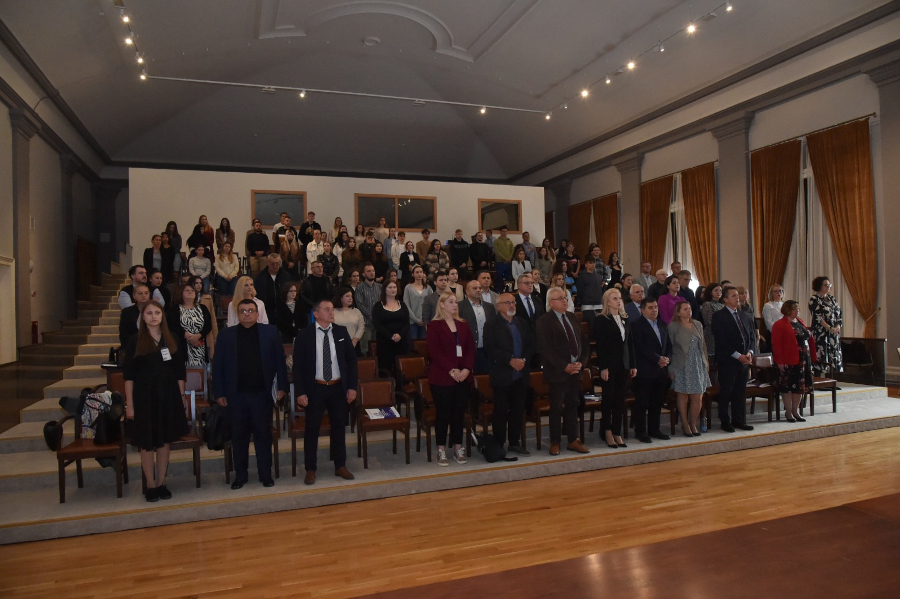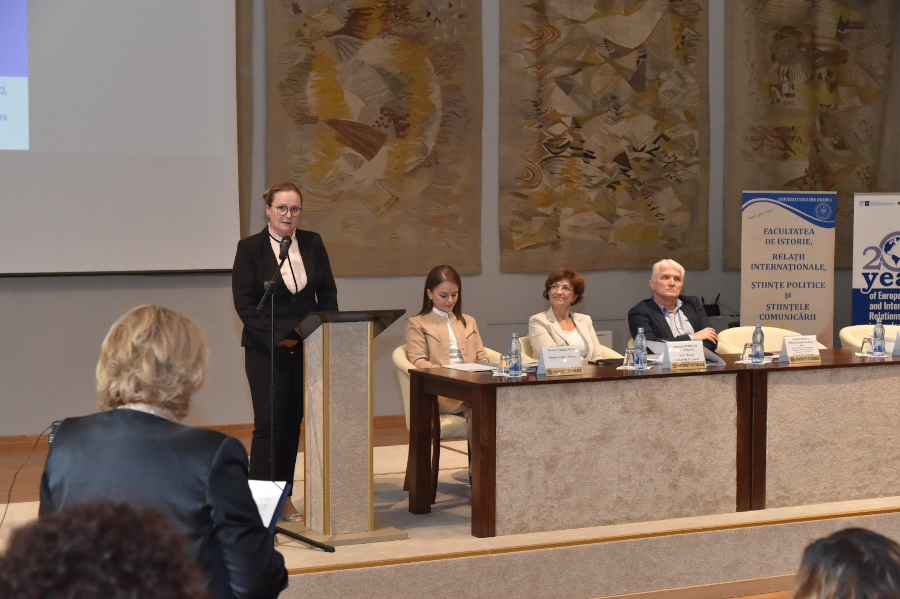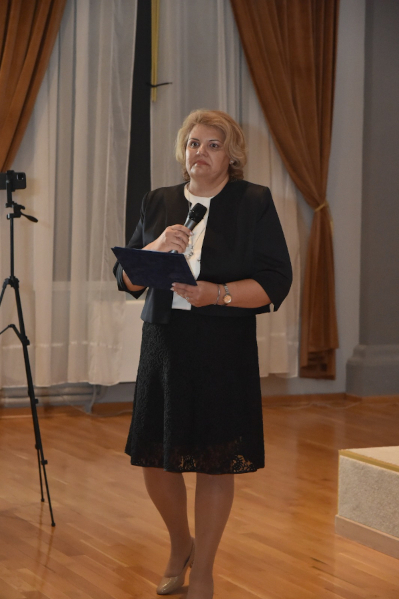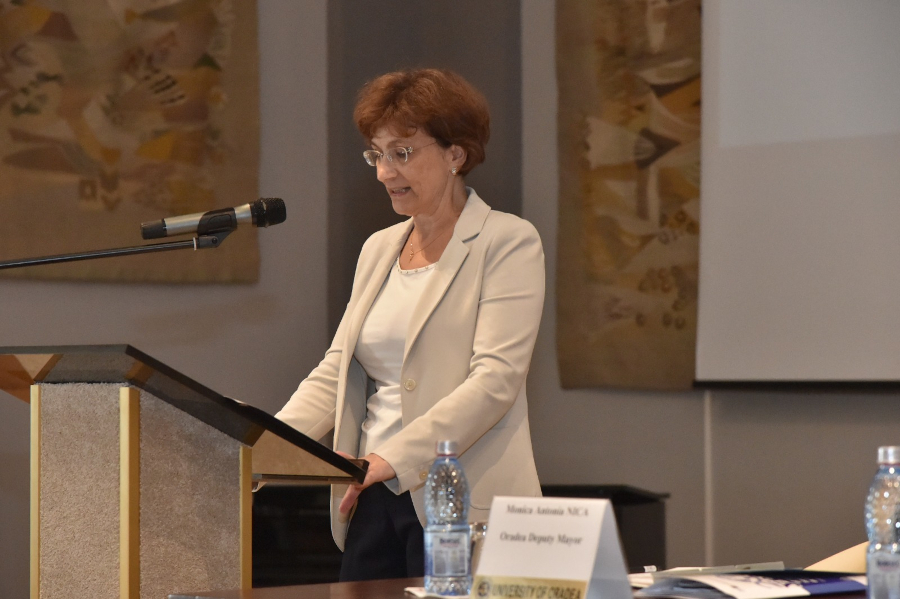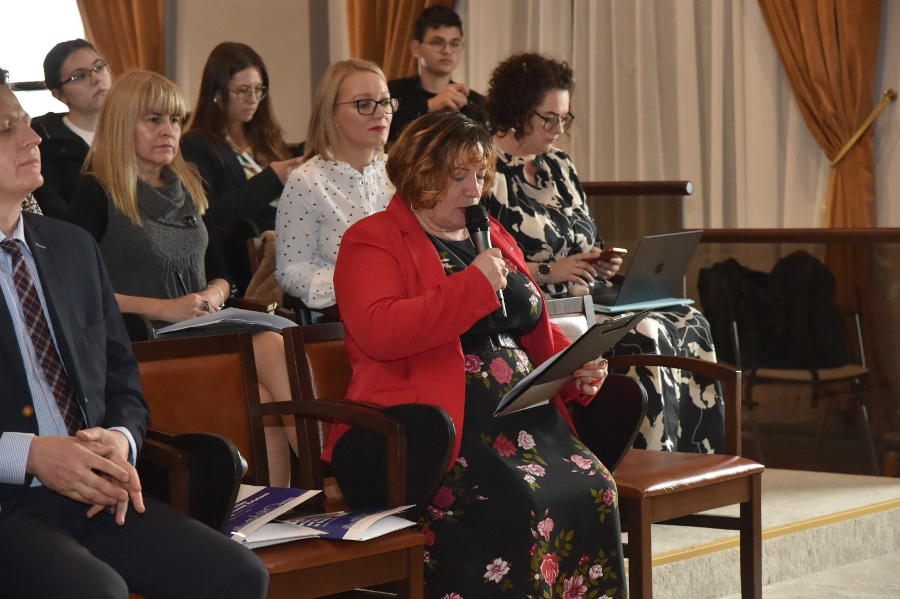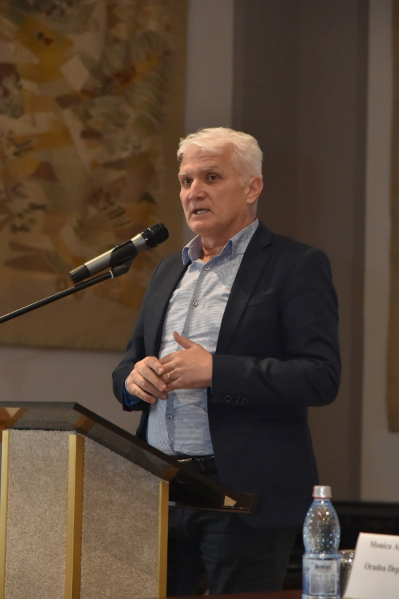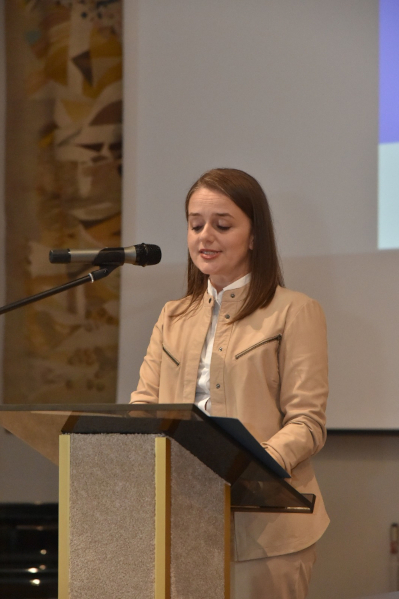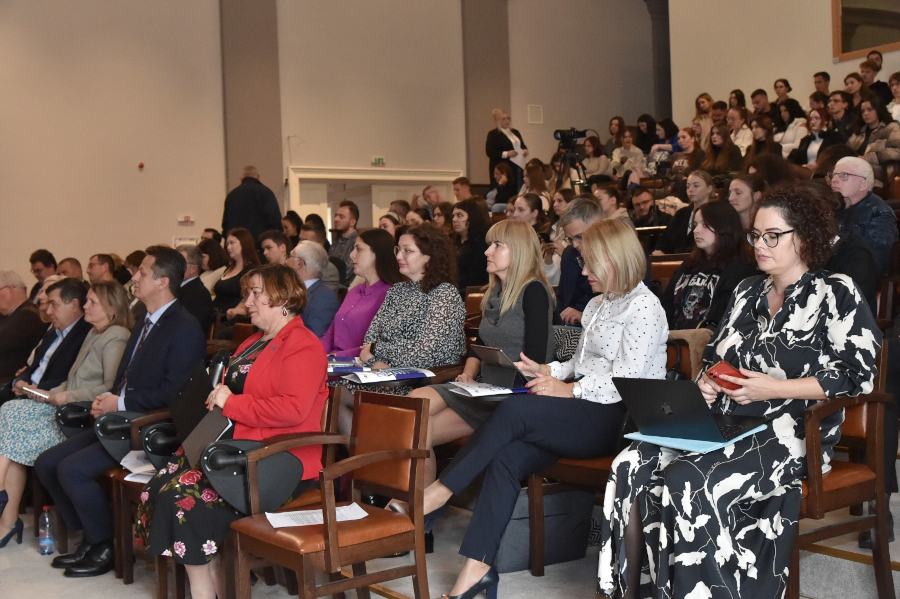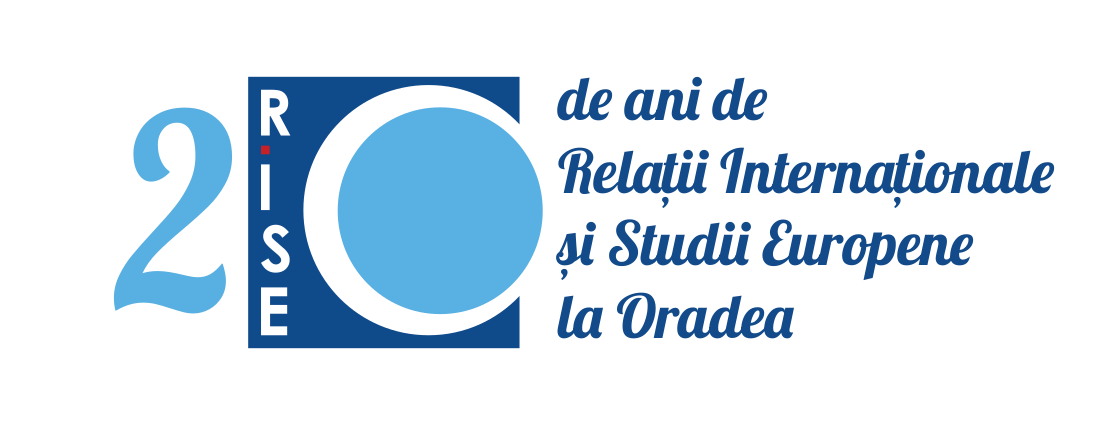20 years of European and International Studies in Oradea (2003-2023)
Two decades ago, at the University of Oradea, the International Relations and European Studies bachelor degree program was established, which, during its existence, made important efforts to be part of the national, European and international academic community of education and research, in several directions.
The Department of International Relations and European Studies invites you to take the time, between the 11th and 13th of October 2023, to come to Oradea, or to join us online, to celebrate together the two decades in which many of you contributed to the evolution of the European and International Studies from the University of Oradea.
For further details, please check out the calls below.
The conference as it happened
Conclusions of the workshops
Workshop 1 - The Evolution of Borders and Cross-border Cooperation from the Start of the EU's Eastward Enlargement to the Crisis of Borders (2004-2023)
In WORKSHOP 1. THE EVOLUTION OF BORDERS AND CROSS-BORDER COOPERATION FROM THE START OF THE EU'S EASTWARD ENLARGEMENT TO THE CRISIS OF BORDERS (2004-2023), a number of professors, researchers and PhD students presented their research, covering a diverse range of countries, as follows: The Netherlands, Greece, Ukraine, Hungary, Republic of Moldova, Turkey and Romania.
Participants were divided into 3 panels giving a series of presentations covering topics of interest related to cross-border cooperation as follows:
- - the concept of border, the history of the border, its evolution and contemporary importance, with a special focus on the evolution of the concept of limit, borders, frontiers, in different languages and cultures in the European Union;
- - relevant results of various cross-border projects implemented at Romania's borders with its neighbours, projects financed through various European programmes, in particular at the Romanian-Uranian border;
- - case studies at the Romanian-Hungarian border;
- - challenges and solutions at the external borders of the European Union, oriented towards the Republic of Moldova, Turkey and Ukraine.
From the perspective of the themes addressed, the authors have touched different dimensions: social, economic, transport, infrastructure, tourism, implementation of cross-border projects, education, regional leadership, cross-border region, workforce, and Schengen area.
Throughout the papers the participants provided a number of theoretical perspectives as well as specific conceptual delimitations of CBC, each with their own specific research, using a methodology appropriate to the study of the panel's theme.
Following the discussions after the presentations, there were a series of questions, discussions, exchanges of ideas and opinions focused on the topic, trying and offering at the same time viable solutions to the themes studied, which also aimed at improving cross-border cooperation at the internal, respectively external borders of the European Union, with reference to specific policies, instruments and bodies.
Workshop 2 - The European Union from the Romantism of Accession to the Current Challenges
In WORKSHOP 2. THE EUROPEAN UNION FROM THE ROMANTISM OF ACCESSION TO THE CURRENT CHALLENGES, the topics covered were very diverse, including interdisciplinary analyses from innovative perspectives. The first part of the presentations and discussions was dedicated to sustainability issues and the EU Green Deal strategy, analysed from the perspective of Western (Germany) and Central Eastern European countries. The second part dealt with relevant topics and analyses in the sphere of security and the geostrategic role of the EU in the context of the nearby military conflicts, while the second part dealt with the strategies of the accession countries (Moldova, Ukraine, Georgia and Turkey).
The third part of the workshop focused on the economic and social issues facing the EU, including issues related to European macro-economic coordination in the current context or the external trade actions of the Member States (Romania, Hungary, Poland). The final part of the debates focused on the role of public diplomacy and culture in particular in the process of integration and strengthening of the European identity.
Workshop 3 - The World from the Decade of Confidence (1997-2007) to the Decade of Successive Crises (2014-2023)
WORKSHOP 3. THE WORLD FROM THE DECADE OF CONFIDENCE (1997-2007) TO THE DECADE OF SUCCESSIVE CRISES (2014-2023) were divided into four panels. The first two panels were chaired by Prof. Mircea Brie and the other two by Prof. Polgár István, both members of the Department of International Relations and European Studies.
In the first two panels, the 10 guests came from universities in Sweden, Ukraine, Poland, Latvia, and Romania, from university centres in Bucharest and Cluj Napoca. They presented a total of 8 papers focusing on topical issues in the field of international relations, the conflict in Ukraine and the European Union in the context of the current crises.
In panels three and four, the 9 papers presented highlighted the importance and role of education in the development process, the changes in the international system, the European construction and the EU enlargement process. The 12 guests from universities in the Republic of Moldova, China, Hungary, Turkey and Romania generated an interesting debate not only for the academic world, but also for the students who listened to the papers.
Workshop 4 - Geopolitical Security Implications of the War in Ukraine
WORKSHOP 4. GEOPOLITICAL SECURITY IMPLICATIONS OF THE WAR IN UKRAINE initially set the context, namely the security challenges generated by the war in Ukraine and its global implications. Subsequently, the discussion was broadened to a wider framework including new developments in Ukraine, with participants identifying the following connections:
Workshop 5 - Weaponized Interdependence or Reigning Free Trade? What has Technology Brought about in the Evolution and Current Understanding of International Relations?
In WORKSHOP 5. WEAPONIZED INTERDEPENDENCE OR REIGNING FREE TRADE? WHAT HAS TECHNOLOGY BROUGHT ABOUT IN THE EVOLUTION AND CURRENT UNDERSTANDING OF INTERNATIONAL RELATIONS?, the conclusions can be summarized as follows:
- 1. Critical raw materials and technology: the focus was on the importance of critical raw materials for the development of new technologies, emphasising the need to manage and ensure constant access to these resources to sustain innovation. The author of the presentation stressed the need for inter-regional collaboration, especially with regard to countries that are not in a privileged position in this respect (e.g. Poland, Romania).
- 2. Artificial Intelligence and the hype behind it: the importance of Artificial Intelligence was acknowledged, but the need for regulation and management of ethical issues was also stressed, avoiding exaggeration and unrealistic expectations in this area.
- 3. Public policies and digitisation in Romania: Romania's concrete efforts for digitisation were presented, highlighting the need for a coherent strategy in this field.
Notes
The participant and volunteer diplomas are no longer available on the website. To obtain your diploma, please contact us at fchirodea@uoradea.ro.
The conference in images
